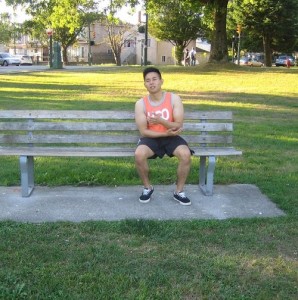There are various treatment options for arthritis. Some usually self-treat at first but it is recommended to consult a doctor if the symptoms persist. When discussing with a doctor, there are several treatment options to consider.
In some circumstances, the individual will find that after making the necessary choices based mainly on the doctor’s advice, there is inadequate relief from arthritis pain. Remember that not all treatments are effective. In most cases, trial-and-error is done to determine what works best. It is vital to recognize when relief is not enough and make the required changes.
Extended period of self-treatment
Many individuals try some form of self-treatment once they experience the initial symptoms of arthritis. At the start, the individual might not realize it is arthritis and attempt self-treatment hoping that it is a minor ailment or injury.

Some often use over-the-counter pain medications, topical creams or patches, supports and heating pads. Even though self-treatment is suitable for temporary relief, it is still best to consult a doctor for proper diagnosis and establish a long-term treatment plan.
Fear of the side effects of medications
Once an individual reads about the possible side effects linked with a particular medication, some might decide not to take them at all. It is vital to be aware of the potential side effects, so that if any undesirable effect develops, the individual can consult a doctor to deal with the issue. Fear should not prevent an individual from trying out a medication that might be beneficial.
Non-compliance
After the individual agrees with the doctor on a course of treatment, it is up to him/her to stick with the plan. If the individual does not take the prescribed medications as directed or skip exercises or miss out on physical therapy sessions, he/she is non-complaint with the treatment. Remember that skipping is not an option.
Choosing a natural or traditional treatment option
Some individuals who have arthritis decide to follow a traditional or natural treatment plan. Essentially, the choice is exclusive which means that they do not allow a crossover between two treatment options. It is possible that the ideal treatment plan might involve a combination of natural and traditional treatments.
More time is needed
Many of the effective treatments for arthritis do not work right away. Some individuals are prescribed with slow-acting medications such as disease-modifying anti-rheumatic drugs (DMARDs) or biological DMARDs. There are also injectable treatments that involve a series of injections.
Fear of addiction to painkillers
Some individuals simply avoid using opioid analgesics to relieve arthritis pain due to fear of addiction. This should be discussed with the doctor. It is vital that the individual understands that difference between tolerance, dependence and addiction.
Aversion to self-injection
There are some rheumatoid arthritis drugs that are administered via self-injection. Since some individuals are afraid of needles, it is best for them to consult the doctor for other possible options.
Delaying the decision to switch medications
Is the current medication program effective? This is a tough question for some individuals. The right timing to switch medications might only make the condition worse instead of better. With this in mind, it is best to consult the doctor regarding the treatment goals.
